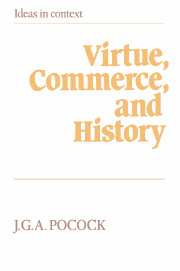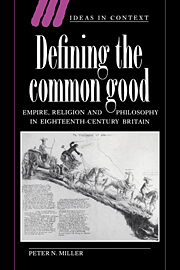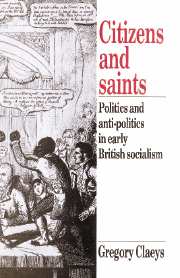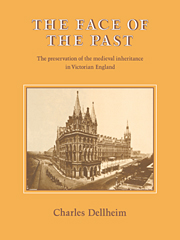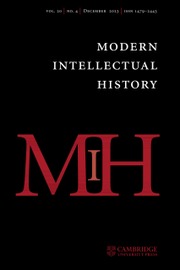Behind and Before
Two Essays on the Relation of History Politics and Eugenist Warnings
£23.99
- Author: W. E. Heitland
- Date Published: October 2013
- availability: Available
- format: Paperback
- isbn: 9781107625587
£
23.99
Paperback
Looking for an inspection copy?
This title is not currently available on inspection
-
William Emerton Heitland (1847–1935) was a well-known classical scholar and a fellow of St John's College, Cambridge. Originally published in 1924, this book presents two essays containing Heitland's thoughts on eugenics and the application of 'biological criticism' to sociological and political questions. Whilst much of the content is dubious in nature, the text provides an important document of its time. This book will be of value to anyone with an interest in historical perspectives on eugenics and socio-political thought.
Customer reviews
Not yet reviewed
Be the first to review
Review was not posted due to profanity
×Product details
- Date Published: October 2013
- format: Paperback
- isbn: 9781107625587
- length: 184 pages
- dimensions: 203 x 127 x 11 mm
- weight: 0.21kg
- availability: Available
Table of Contents
1. Students note defects in policy
2. Relation of policy to study. Theories. History - what use?
3. Study in general - aims - science and art
4. Application to history and politics. No exact science, but art in function
5. Political art functioning in time
6. Personalities and motive. Accidents
7. Moral judgment and circumstance
8. Analogies and parallels
9. Anticipation and protraction
10. Modern history more useful than ancient or medieval
11. Enlarged outlook since 15th century. Political problem of Europe
12. Representation - nationality
13. Danger of modern analogies etc. Precedent. Irish policy
14. Lack of checks in British constitution
15. Need of education. Grades of education, difficulties of each
16. The possible and desirable in historical study
17. Orientation, its function
18. Desultory reading, conditions of its usefulness
19. Academic teaching. Its methods, aims and dangers
20. Interest in subject matter discussed
21. Foreign policy. Questions raised by nationality
22. The value of knowledge in dealing with such issues
23. Reaction on home conditions nowadays
24. Dangers of error in comparing situations
25. Student's task difficult. Questions of moral judgment
26. Case of 17th century movements and issues
27. Lessons derivable therefrom
28. Analysis of questions raised in historical study
29. Nature and conditions of experiment in politics
30. Change of conditions owing to 'popular' government
31. Public opinion, how to be ascertained?
32. Swift communications, their effect. The press
33. 'Mandates' and their inevitable difficulties
34. Modern devices - referendum. Proportional representation
35. Value of vox populi. Complications of mandate doctrine
36. Has government by majority ever been an effective fact?
37. Difficulty of gauging significance of elections
38. History, how far indirectly of use to statesmen in facing problems arising therefrom
39. Supreme importance of leadership
40. Education of leaders, how best achieved
41. Mankind and other animals as needing leaders
42. Human nature at present beyond exact analysis
43. Human defects recognized. Special difficulty in politics
44. Party system. Apprenticeships. Learning by experience. 45. Practical politics and natural sciences
46. Biological view - zoological - heredity
47. Classes and functions. Middle class failing
48. Heterogeneity. Danger of promoting rise into upper classes
49. Fallacy of inequality. Are modern states experimenting rashly?
50. Class-distinction criticized
51. Demagogy - queries - slum-system the real present evil
52. Laissez-faire. Socialist movements. Anti-slum movements
53. Garden schemes good - small as yet. Despite difficulties, better than legislative palliatives
54. True aim to improve character
55. Training of citizens. The birth-rate question. Biological attitude as to restriction. How get the power needed for dealing with the matter?
56. Supposed analogy of bodily and social organisms. Control of breeding - can it be applied in human societies?
57. Is it applicable to classes as well as to individuals?
58. Interchange between classes - query, unavoidable? Present attempts to deal with problem
59. Rising and sinking. Query as to effects on classes
60. Interbreeding and illegitimacy. Caution needed
61. Biological pessimism - democracy condemned
62. Doubts as to necessity of pessimistic view
63. The element of time. Is it too late to reform? The boom of the 19th century and present peril
64. Emigration as a proposed remedy, and the grave difficulties to be faced at home and in the colonies
65. Present conditions within the British Empire. Mutual accommodation the only way hopeful
66. Psychology and history
67. Need of emotional influences for effective operation in public affairs
68. Religion as supplying such influence
69. Conclusions
Remarks on the s
Sorry, this resource is locked
Please register or sign in to request access. If you are having problems accessing these resources please email [email protected]
Register Sign in» Proceed
You are now leaving the Cambridge University Press website. Your eBook purchase and download will be completed by our partner www.ebooks.com. Please see the permission section of the www.ebooks.com catalogue page for details of the print & copy limits on our eBooks.
Continue ×Are you sure you want to delete your account?
This cannot be undone.
Thank you for your feedback which will help us improve our service.
If you requested a response, we will make sure to get back to you shortly.
×


